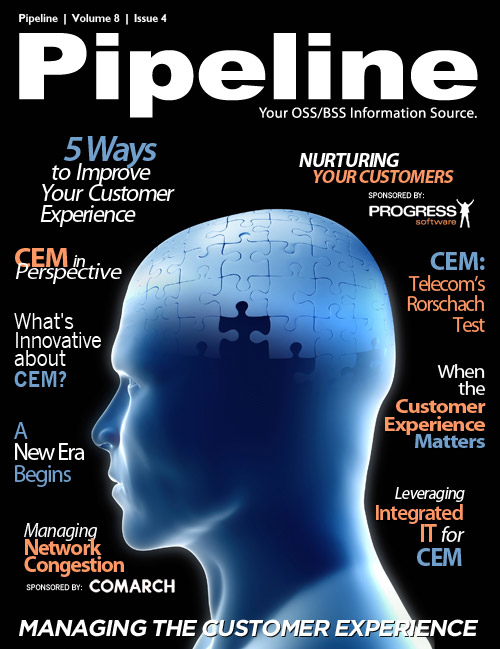But how about the opposite? Can improving the user experience drive out cost and increase revenue?
“The good news is that the technologies that allow you to do a better job of understanding your
customers and looking at your customers and looking at the business the way the customer does,” said
Ruzicka, “those things do reduce cost. They do improve revenues. They do have all of those positive
money effects. Then you start to see your business case.”
And what exactly do customers want? Well, recent research from Yankee Group can give us some idea.
In their 2011 U.S. Consumer, Yankee asked consumers to rank their most important ingredients for a
positive customer experience. Sixty-two percent did name competitive pricing as being among the top
considerations. Does that mean that consumers just want cheap service? Not entirely, as network
service quality was also named a top concern by some 53 percent of users.
That these elements topped the list isn’t all that surprising. What’s more surprising, however, was how
few consumers named devices (11%), web self-service (7%), and retail stores (5%) as top concerns.
Perhaps these elements may bring customers in the door, but they aren’t considered to be long-term
concerns.
Still, if customers are most concerned with having higher network quality at lower prices, is the nature
of the customer experience even worth considering? For example, we all know of service providers
who crow about their customer service and their network speeds, but still hemorrhage customers.
These providers, said Ruzicka, aren’t focused enough on the full business proposition for prioritizing the
customer.


“You can’t say you’re going to be customer focused and not do anything on the back end.”
That business case for prioritizing the customer experience, however, has not fully emerged. “The
conversations I have had around CEM payback have been very focused, function-specific kinds of chats,”
said McNeice. “They're not broad ROI benefits just yet. “
“That said,” McNeice continued, “the benefits are still real.” She went on to relate a story of an
executive at one Southeast Asian mobile operator who was so taken with one data analysis product and
the real savings it produced in increased attach rates and decreased call center time that when he left
his job at that operator and started a new job with another, he insisted on using that same vendor’s
product at his new post.
Of course, the specific benefits depend on the type of solution we’re talking about.
“What they’re bringing to market is something that helps with that cultural rotation,” said Ruzicka.
“Now I can give you that data that you’ve always had about your customer in a form you can use or that
another system can use.”
This is arguably the most compelling set of solutions under the CEM banner. By taking all that customer
data that was coming in all along and packaging it in a way that the business folks can understand it and
use it to drive strategy, everything from network planning to marketing efforts can be optimized in a
way that meets customers where they are.
“Recently, you see it on the customer support side,” said Ruzicka. “If you can give the folks in the call
center better data, and give them answers instead of just another icon, then the call times go down.
You can save real money there, and the customers are more satisfied.”
Here again, we have an opportunity for clearly defined cost savings. At a recent conference, I heard
a Comcast executive say that one second of average call center time costs his company around $2.5
million. That’s a serious opportunity for savings.
“The customer criteria will never be as high as the money criteria, and we have to accept that,” said
Ruzicka. "However, there is a lot of synergy there, and we’re just starting to capture that. If I actually do
something that benefits the customer, it does benefit the business. They’re not mutually exclusive.”











